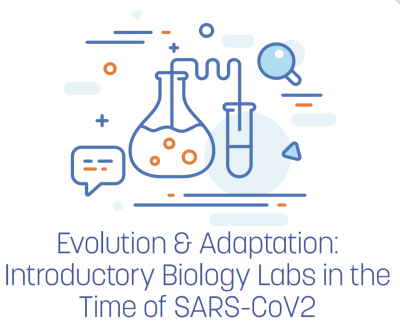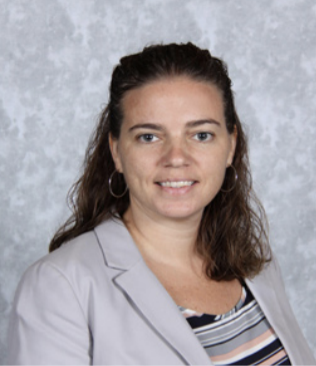
Crosby High School, Waterbury
Cathleen Newmark, Interim Principal
“Crosby High School is an urban school in the City of Waterbury. It serves 1,220 students and has a staff of 140. The demographics of the student populations are: 733 Hispanic, 303 African American, 135 White, 20 Asian, 17 two or more race categories and 12 American Indian.”
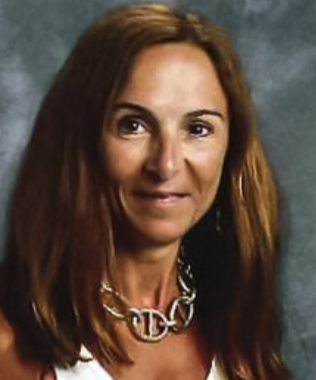
J.M. Wright Technical High School, Stamford
Phyllis Bartoli, Principal
“There are 450 students who are currently enrolled at J.M. Wright Technical High School. Our students primarily come from Stamford; however, other communities represented are Greenwich, Norwalk, Wilton, Westport, Darien, Fairfield, and Bridgeport. There are 9 trades (Automotive Technology, Carpentry, Culinary Arts, Digital Media, Electrical, Health Technology, Hospitality Management, Information Technology, and Plumbing & Heating), each with 2 instructors. On the academic side, there are 20 teachers.”
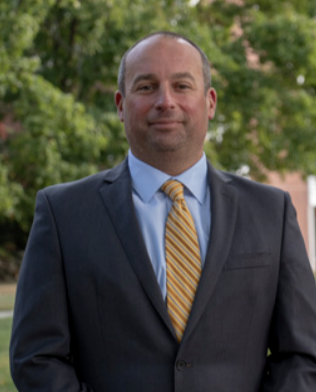
The Woodstock Academy, Woodstock
Christopher Sandford, Head of School
“The Woodstock Academy is an independent “Town Academy” which was founded in 1801. There are only 22 Town Academies in the United States and three of them are in Connecticut. The majority of our day students come from six of our nearby towns. In addition, we have day students from the local area who pay tuition to attend along with up to 200 students who enroll through our boarding program. This boarding environment attracts students from all around the country and the world. In total, we have about 1,100 students in grades 9-13. While our school sits in a very rural area in northeast Connecticut, we have students in our boarding community who come from more diverse areas all over the world.”
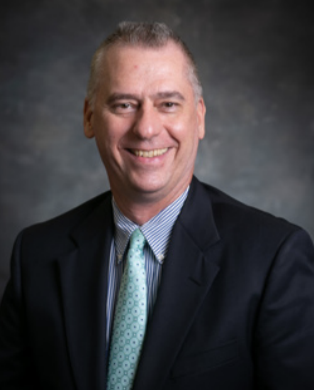
Xavier High School, Middletown
Brendan Donohue, Principal
“Xavier High School is an all-boys, Catholic, College Prep school located in Middletown, Connecticut. We are co-sponsored by the Xaverian Brothers and the Diocese of Norwich. We have 662 students enrolled in grades 9-12. We have 55 full- and part-time teaching faculty.”
Principal Confidential–People, Places, & Pedagogy
By Brian A. Boecherer
They say, tough times make for resilient people. If so, we are in a period of reinforcing our resilience and as a result we have become and will even still become stronger and wiser. What have we learned in 2020 that challenges and also reinforces our previous thinking and what will we carry with us into the future? As the pandemic rages on, most of us are still trying just to manage the current situation. Instructors are thinking about which parts of their curriculum can be restructured to fit a new course pace and how to offer compassionate assessments that suit the moment, but still require students to deeply engage. Principals are thinking about their students as well, along with district mandates; the health, well-being, and obligations of their teachers; and their high school as a cohesive society. This became clear from my interviews with four UConn ECE high school principals [introduced to the left]. They are thinking about the people, the place, and the pedagogy.
These four high schools show four very different spaces and highlight unique situations as well as some important similarities. To set the scene, all four schools have different demands based on whether their students are mostly onsite, mostly remote, and somewhere in between. The students who attend Xavier High School are mostly in-person, with a small percentage of students opting for distance learning. The Woodstock Academy, on the other hand, has gone completely remote, although they have a residential student population to consider as well. Crosby and Wright Tech are hybrid, with the majority of their students at a distance, but about a third of their students are on campus at any given time.
How does structure influence teaching and learning?
Cathi Newmark, Crosby High School: “Waterbury Public Schools is in a hybrid learning model. ALL students and their families were given the option to choose to attend school in-person or enroll in the district’s Virtual Academy. At Crosby, ALL students (in-person and virtual) participate in synchronous learning every day from 7:20 to 11:20 a.m., with an additional 80-minutes of asynchronous learning when they return home. In addition, all students and families are afforded the opportunity to meet with teachers from 1:25-2:00 p.m. for additional individual/small group assistance.”
Phyllis Bartoli, J. M. Wright Technical High School: “Because students at J.M. Wright Technical High School manage two programs – trade and academic – they operate on two-week cycles. On their academic cycle, students have been divided into two groups (virtual/in-school) [to de-densify the building]. There are approximately 33% of students on campus daily. There are about four students per class, and they travel in cohorts. Teachers have designed their classroom so that students are sitting six feet apart. On the trade side, all students stay in their shop except for lunch. There is very limited hallway “traffic”. It is the students’ responsibility to recognize when they are to be on campus and when they are to access their academic program from home. Even with this model, [with all students and instructors wearing masks] there are families who have opted to do their learning completely virtually.”
Chris Sandford, The Woodstock Academy: “About six years ago we started a one-to-one program where every student has been given an iPad. This initiative has been a game changer in terms of technology, equity and shifting our overall pedagogy throughout the entire school. It has led to new courses being created or courses being restructured in almost every department which has expanded our ability to meet our mission as an institution.
“Also, we have offered online classes in the evening for those students who may find those type of classes better suited for their schedule. We have eliminated snow days to provide a continuous educational experience that limits the movement of commencement. Right now, we are considering shifting our weekly schedule to one that has only four in-person days each week. This might be a way for students to become more familiar with the virtual format they will undoubtedly see in college, while providing more valuable and precious professional development time for staff.”
Brendon Donohue, Xavier High School: “Normally, Xavier has a seven-period day; 45-minute periods. This year we returned fully in person with a small percentage of students choosing to learn remotely due to family medical reasons. As part of our reopening plan, we reduced the number of classes per day and lengthened the periods. We now have five-periods a day [with] 60-minute classes. This was done in large part to minimize the number of times students are passing through the hallways. Of course, we have many other protocols in place that I am sure are universal in other schools. Designated dining areas [with plexiglass], directional signals in hallways, one-way stair wells, hand sanitizer in every room and in common areas, no lockers, etc.”
What is the most difficult part of managing a high school during COVID-19?
Cathi Newmark, Crosby High School: “Students have varying responses to this new way of learning. Some are more comfortable and prefer learning at home, sharing a greater ability to focus with less distractions in place, while others miss the routine and social interaction of the traditional school day. They have all demonstrated resilience and an admirable ability to adapt to the pandemic and the uncertain times we are all navigating through together.
“While we recently had a change in administration at Crosby, the staff continues to navigate the challenges of teaching and supporting students during a pandemic with resilience. The faculty has stepped up and they offer each other support and guidance where and when they see the need. They share teaching tips with each other on our new platform, ParentSquare, which is a communication tool our district launched this year. They support each other emotionally and have demonstrated empathy and understanding when challenges arise.”
Phyllis Bartoli, J.M. Wright Technical High School: “What’s most difficult is that the schedule changes daily. It is imperative to communicate the schedule on a weekly basis to families, students, and staff. Students are managing as well as possible. To establish consistency, online norms were created: Video on; Audio off, unless speaking; Arrive to class on time; Follow their schedule; Check their email; and Dress appropriately, preferably in uniform. Faculty are having a difficult time with hybrid teaching, namely, there are only a few students in their class and the rest of the class is virtual. Web cams were donated by the Parent Faculty Organization (PFO) to enhance video clarity. They feel, overall, comfortable with the way administration has managed the schedules and students. Communication is extremely important, so weekly staff update meetings have been scheduled.”
Chris Sandford, The Woodstock Academy: “Our largest challenge rests with meeting the social and emotional needs of our staff and students. Both our school goal and many of our Board of Trustee’s goals for this year were created with this focus. Fortunately, we have had very few issues with technology, but with our community so spread out and diverse, we are always concerned about the isolation of our students and staff.”
Brendan Donohue, Xavier High School: “A key characteristic of Xaverian education is “enduring personal relationships”. This is a hallmark of the Xaverian Brothers who have always had a presence at Xavier and who sponsor the school though the Xaverian Brothers Sponsored Schools network. Throughout the pandemic it has been hard to conduct many of our programs in the same manner that we typically do. This has hampered our ability to interact with our students in the manner we are accustomed to. Of course, it is also difficult to maintain these relationships with those students learning remotely. The freshmen are of particular concern.”
What is the biggest silver lining in teaching and learning that came from the pandemic?
Cathi Newmark, Crosby High School: “One of the greatest milestones we have achieved as a district is the increased access to technology for our students. The bar has been raised for educators and students to utilize technology to improve instructional practices and student assessment while using various online tools and platforms. This year, teachers have been afforded a wealth of professional learning time (daily) and have been using this time to focus on SEL [Social and Emotional Learning] practices, engaging students in the hybrid learning model and gaining certifications in the areas of Google and Kami as tools to guide their instruction.
“We have a very active Positive Behavior Intervention and Support (PBIS) team that acknowledges and rewards both staff and students on a regular basis. We recognize that this is a difficult time for all of us and have increased our efforts to boost morale among our students and staff. Some of the initiatives that have taken place include sending handwritten postcards to all students and staff that are currently learning/teaching virtually and a FALLOWEEN celebration where we distributed treats to all students as they exited the building. We have implemented a walking club during our lunch block to encourage healthy practices and camaraderie amongst our staff. We promote FineArt Fridays and Music Mondays on our social media platforms where we post Crosby student pieces. We also announce an SEL quote of the day during our student-led morning announcements.”
Phyllis Bartoli, J.M. Wright Technical High School: “Wednesday is now a virtual day for students. They also operate on an early dismissal schedule. While teachers are on campus, the teaching portion of the day ends at 11:30am. They can have lunch delivered to the high school or step out. They then can use the rest of the day for collaboration and planning.”
Chris Sandford, The Woodstock Academy: “While it has been a struggle, I can say that I have never been prouder of the individuals that work and study at The Academy. This has not been easy on anyone, but what I have seen from adults and students has been nothing short of inspiring. Sitting with students in the boarding community around a fire pit and just chatting about how things will be different after the pandemic, or meeting with students (virtually) as they advocate for social justice issues, or hearing how people have coped while struggling with sick parents or family members (or their own sickness), has brought some important things into focus this year. Even though we have been forced to distance ourselves, we have never been more connected together.”
Brendan Donohue, Xavier High School: “People are resilient and innovative. They rally around each other in difficult times. That has been the greatest takeaway for us here at Xavier. Because of the pandemic, everyone has been forced to try new things. We have had to learn new ways to educate. Many of us find this very uncomfortable. I have watched our faculty and staff and students roll up their sleeves and figure it out. When this is all over, there will be many things that we will be glad to see go, but there will also be things we retain because the challenge has made us better – better educators and students, better people. I am eager to see what a Xavier education looks like in the future because of this. Some things will always stay the same – academic excellence, enduring personal relationships, a strong moral foundation rooted in Catholic Social Teaching and Xaverian values. How we do things might look a bit different because of this experience. The Xavier community will be better because of this pandemic.”
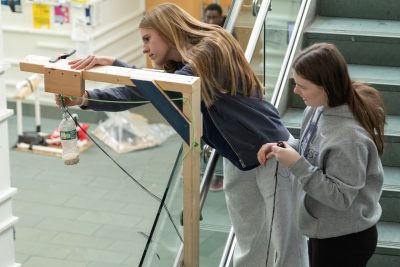 ntific expertise of Connecticut’s brightest young minds.
ntific expertise of Connecticut’s brightest young minds.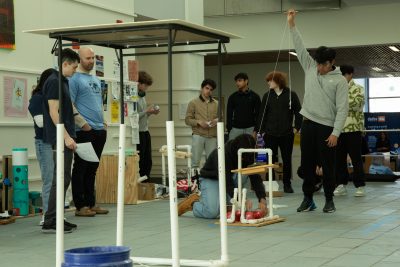 nces it creates. Students took on scientific challenges, worked with their partners, and struggled through complex problems as a team. Whether they were fine-tuning an engineering design, solving chemistry puzzles, or testing flight mechanics, every participant walked away with new skills and unforgettable memories.
nces it creates. Students took on scientific challenges, worked with their partners, and struggled through complex problems as a team. Whether they were fine-tuning an engineering design, solving chemistry puzzles, or testing flight mechanics, every participant walked away with new skills and unforgettable memories.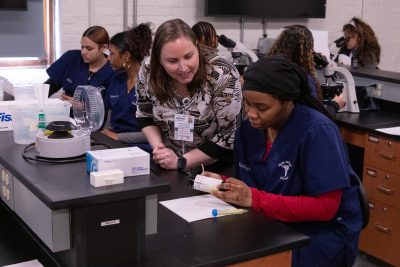
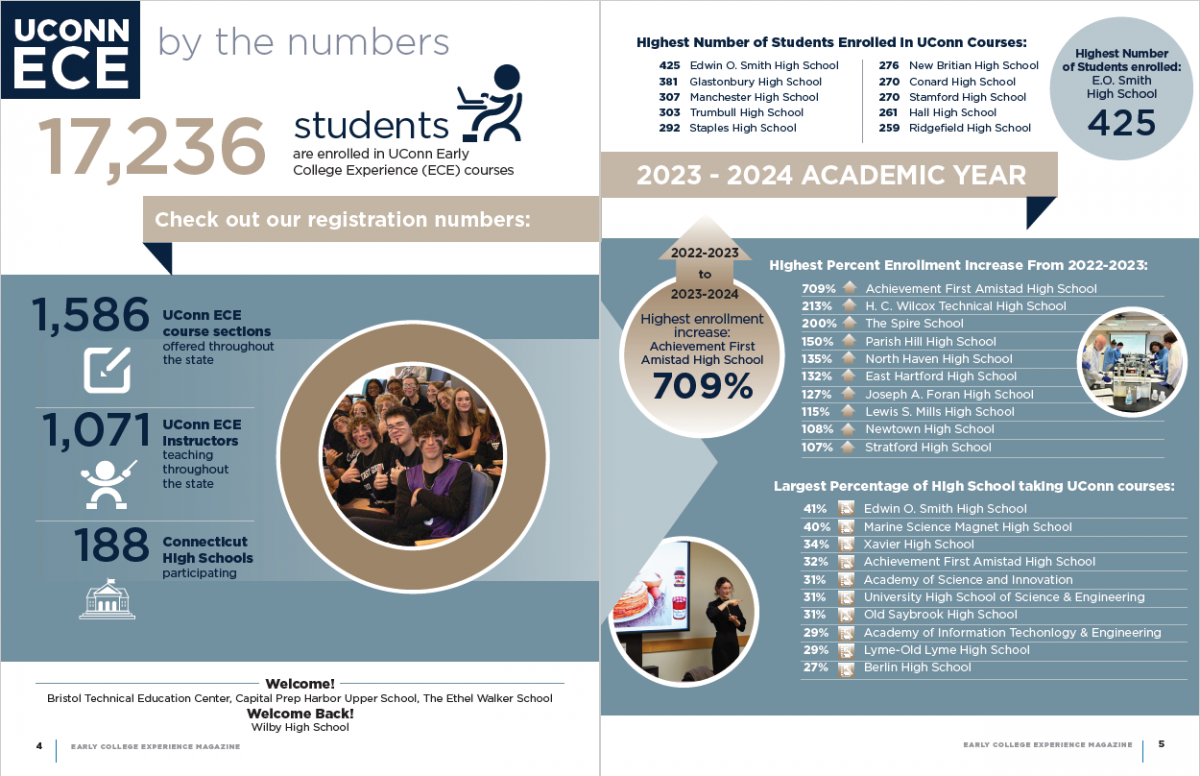
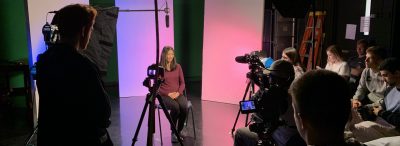 tall interactive game wall in the Boston Children’s Hospital or historic VR tours of King Charles the IV’s crowning ceremony, our students make works of art by thinking collaboratively. Collaboration and critique are valuable skills in new media, corporate, and academic environments. Our program accommodates most professional and open-source software, and we work with teachers who need initial support converting courses. Students in our program intern and work at companies like Adobe, Disney, Epic Games, ESPN, and Pixar. For teachers looking to apply, please check the requirements of the portfolio on the
tall interactive game wall in the Boston Children’s Hospital or historic VR tours of King Charles the IV’s crowning ceremony, our students make works of art by thinking collaboratively. Collaboration and critique are valuable skills in new media, corporate, and academic environments. Our program accommodates most professional and open-source software, and we work with teachers who need initial support converting courses. Students in our program intern and work at companies like Adobe, Disney, Epic Games, ESPN, and Pixar. For teachers looking to apply, please check the requirements of the portfolio on the 
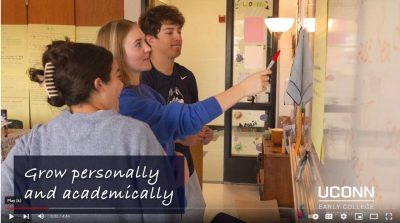
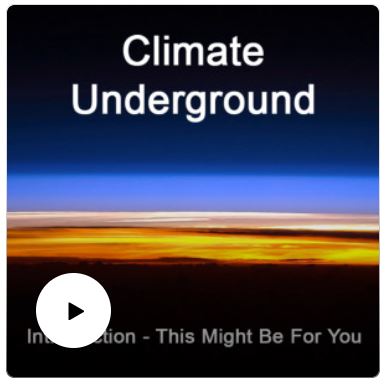

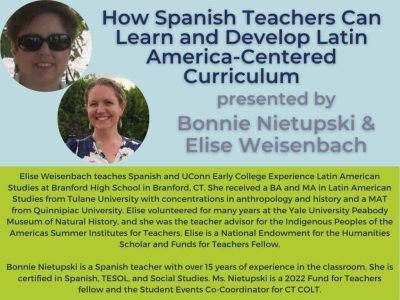
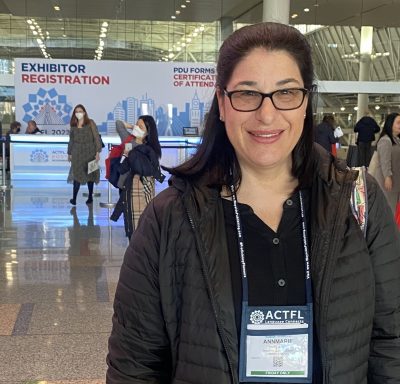
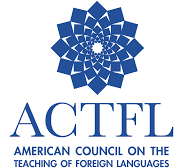 Teaching of Foreign Languages
Teaching of Foreign Languages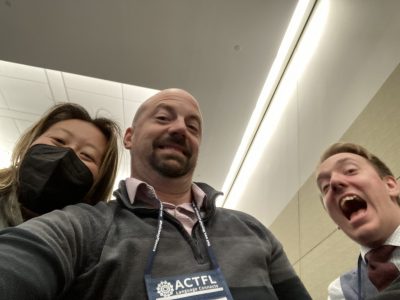 Andrew Morehouse: While attending the 2022 ACTFL conference in Boston, I had some wonderful opportunities for professional development in seeing multiple sessions on utilizing SLA theory in practice (especially with a focus on assessment) and using tech tools that are in line with modern language pedagogy. Additionally, I made connections with several publishers to work on projects with them that will provide better Latin resources for the world. When not at talks or chatting with publishers, I was able to get resources such as novellas for my Spanish classes. All the while, I spent time with dear friends and colleagues and developed deeper bonds and relationships with these folks. I am incredibly appreciative of the funding from UConn that allowed this to happen and I look forward to going to ACTFL Chicago next year to spread more word of the ECE program.
Andrew Morehouse: While attending the 2022 ACTFL conference in Boston, I had some wonderful opportunities for professional development in seeing multiple sessions on utilizing SLA theory in practice (especially with a focus on assessment) and using tech tools that are in line with modern language pedagogy. Additionally, I made connections with several publishers to work on projects with them that will provide better Latin resources for the world. When not at talks or chatting with publishers, I was able to get resources such as novellas for my Spanish classes. All the while, I spent time with dear friends and colleagues and developed deeper bonds and relationships with these folks. I am incredibly appreciative of the funding from UConn that allowed this to happen and I look forward to going to ACTFL Chicago next year to spread more word of the ECE program.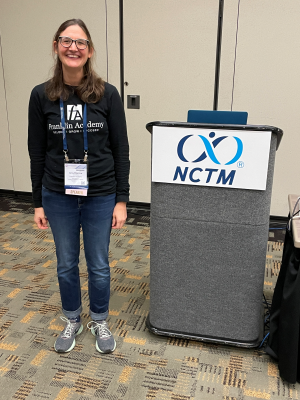 Amy Bigelow: December 1 & 2, math educators converged in Baltimore for the annual
Amy Bigelow: December 1 & 2, math educators converged in Baltimore for the annual 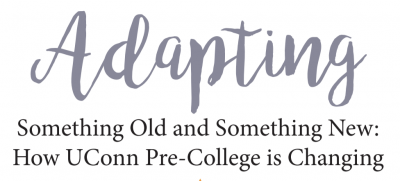
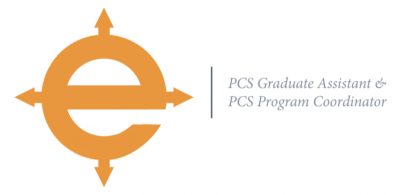

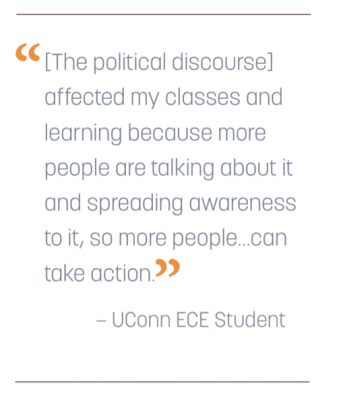 We also had the opportunity to interview Camila Lopez, a sophomore at J.M. Wright Technical High School who spoke about the political events that affected both her family and her education. When asked about how her peers were getting involved with political issues she answered, “Here in Stamford, there have been a lot of protests downtown,” and continued by saying, “there are issues going on that need to be spoken about, and I’m a big fan of peaceful protesting.” When asked if today’s current events have also been addressed within the classroom she said, “Yes, especially since I’m taking the UConn ECE Human Rights course our teacher was like, ‘yeah we’re talking about this’. What I really like about it, and what a lot of students I’ve seen like about it, is there’s more real-world subjects.” She went on to say that she liked the platform students were given in class to speak their minds, especially in her UConn Human Rights course. She mentioned that, “What I like about it is the flexibility that the teacher has, like if there is a problem going on [our teacher will say], ‘does anyone want to talk about it?’ He’ll give us the platform so we can say what we’re thinking and then we start discussing it. There aren’t necessarily debates or arguments about it, it’s just discussing it in general which is really nice.” Camila also mentioned that she and other students believe bringing up these issues in class is the first step to bringing about change. “There’s a curriculum but because it’s a human rights class you can kind of go off of it in different directions. You can have an assignment on race, but because there are still racial inequalities today, you can talk about what’s going on today.” Camila also mentioned that although students were quieter in their online classes, once a conversation was started on a controversial topic or current event, students were more willing to jump in and share their thoughts. She reminisced about being in the classroom in the beginning of the year and explained, “Once one person starts [the conversation], it kind of goes from there, and with a couple of people joining it leads to more. I feel like with online classes a lot of kids are quieter than I’m used to seeing in class.” And although high school students may not be as outgoing or willing to participate over Zoom, Camila emphasized that their voices are still being heard. Towards the end of the interview, we asked Camila how the political discourse had affected her family. Her response was, “I’m Guatemalan and I love talking about politics with my dad.” Once again she mentioned that talking about these issues is one of the most important things students are doing. At the end of the interview Camila reiterated how important it was to spread awareness about current topics in the class room, and to keep students involved in the conversations.
We also had the opportunity to interview Camila Lopez, a sophomore at J.M. Wright Technical High School who spoke about the political events that affected both her family and her education. When asked about how her peers were getting involved with political issues she answered, “Here in Stamford, there have been a lot of protests downtown,” and continued by saying, “there are issues going on that need to be spoken about, and I’m a big fan of peaceful protesting.” When asked if today’s current events have also been addressed within the classroom she said, “Yes, especially since I’m taking the UConn ECE Human Rights course our teacher was like, ‘yeah we’re talking about this’. What I really like about it, and what a lot of students I’ve seen like about it, is there’s more real-world subjects.” She went on to say that she liked the platform students were given in class to speak their minds, especially in her UConn Human Rights course. She mentioned that, “What I like about it is the flexibility that the teacher has, like if there is a problem going on [our teacher will say], ‘does anyone want to talk about it?’ He’ll give us the platform so we can say what we’re thinking and then we start discussing it. There aren’t necessarily debates or arguments about it, it’s just discussing it in general which is really nice.” Camila also mentioned that she and other students believe bringing up these issues in class is the first step to bringing about change. “There’s a curriculum but because it’s a human rights class you can kind of go off of it in different directions. You can have an assignment on race, but because there are still racial inequalities today, you can talk about what’s going on today.” Camila also mentioned that although students were quieter in their online classes, once a conversation was started on a controversial topic or current event, students were more willing to jump in and share their thoughts. She reminisced about being in the classroom in the beginning of the year and explained, “Once one person starts [the conversation], it kind of goes from there, and with a couple of people joining it leads to more. I feel like with online classes a lot of kids are quieter than I’m used to seeing in class.” And although high school students may not be as outgoing or willing to participate over Zoom, Camila emphasized that their voices are still being heard. Towards the end of the interview, we asked Camila how the political discourse had affected her family. Her response was, “I’m Guatemalan and I love talking about politics with my dad.” Once again she mentioned that talking about these issues is one of the most important things students are doing. At the end of the interview Camila reiterated how important it was to spread awareness about current topics in the class room, and to keep students involved in the conversations.




